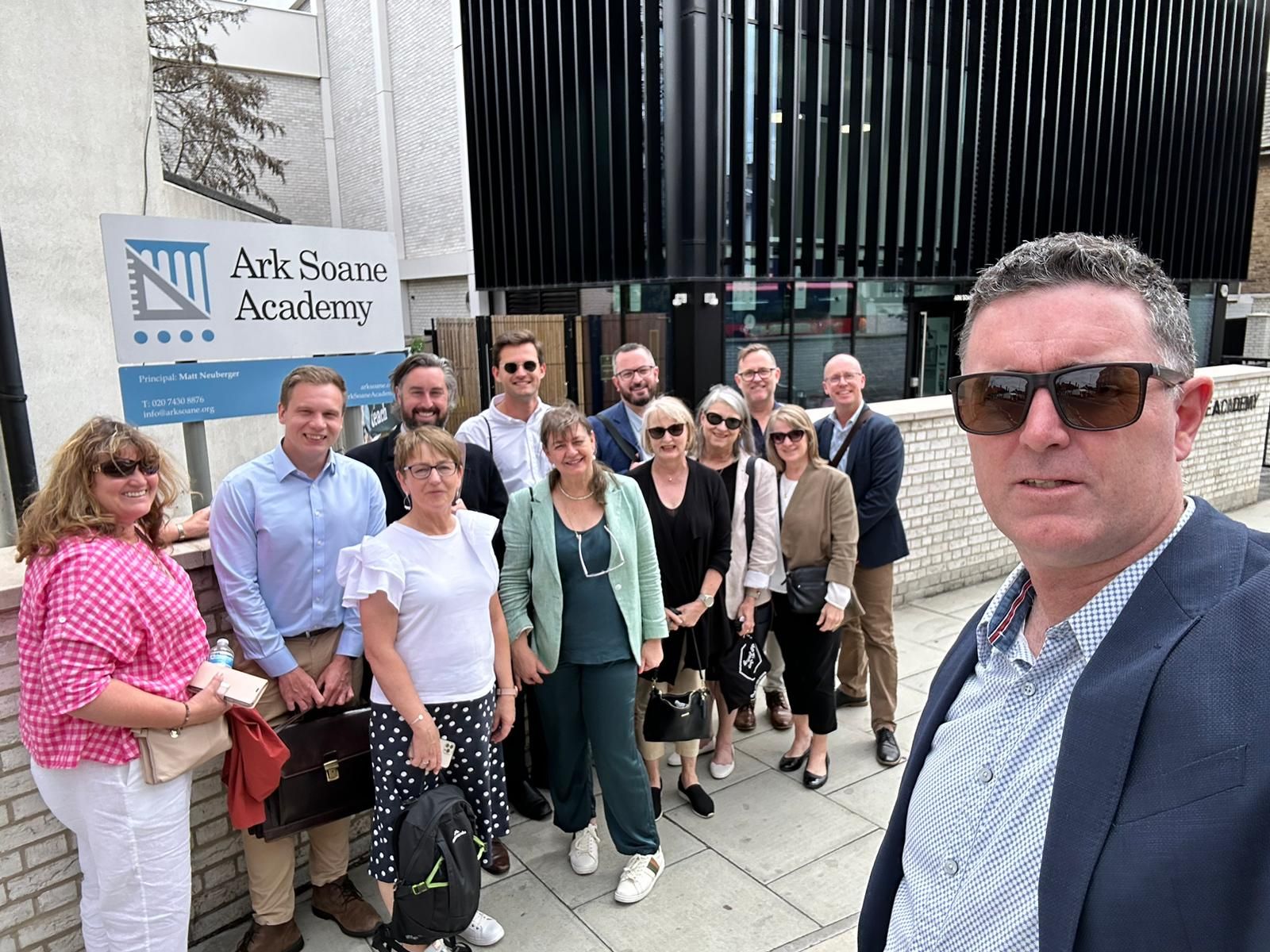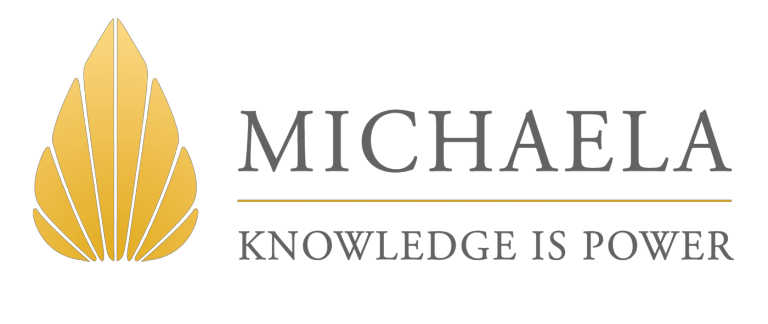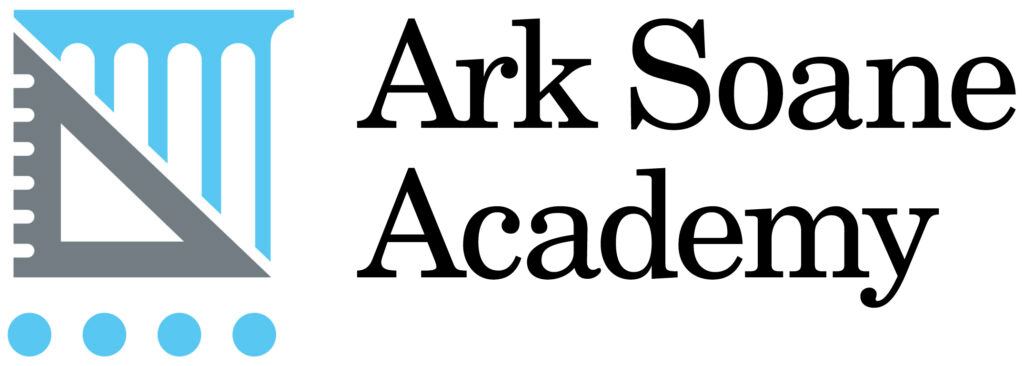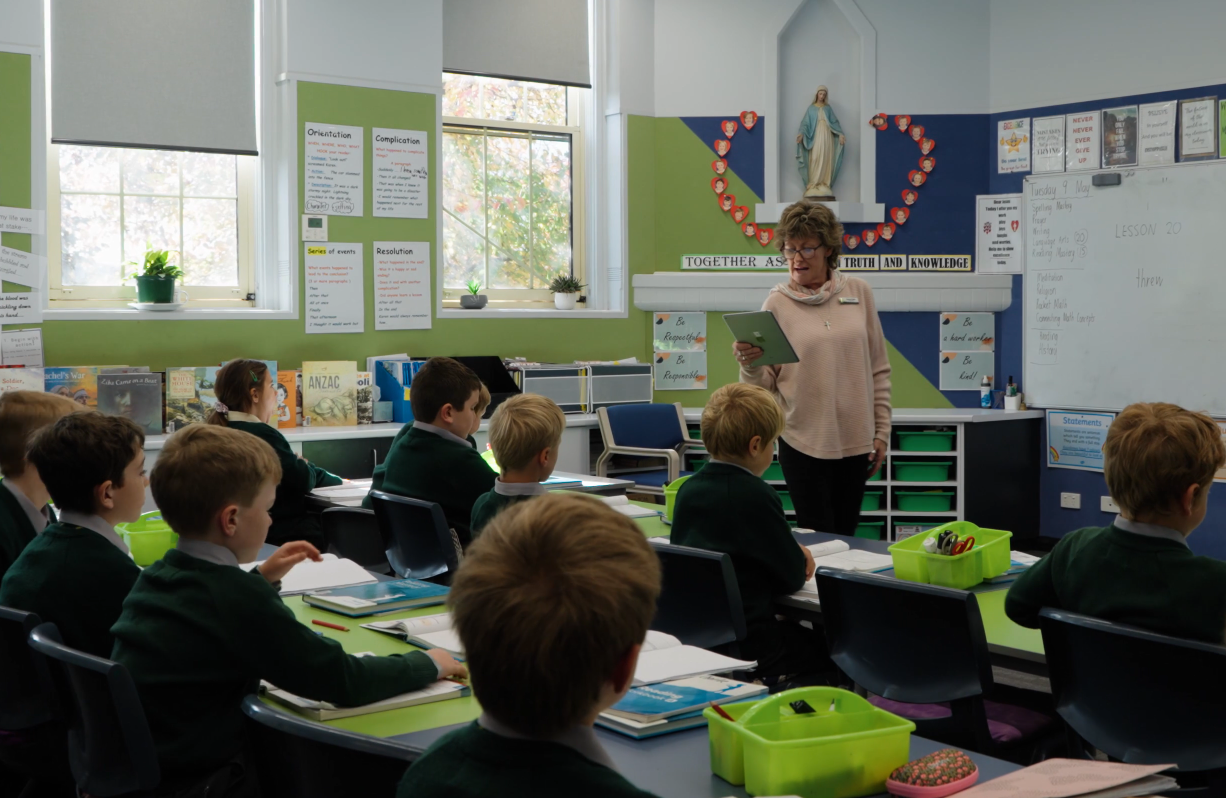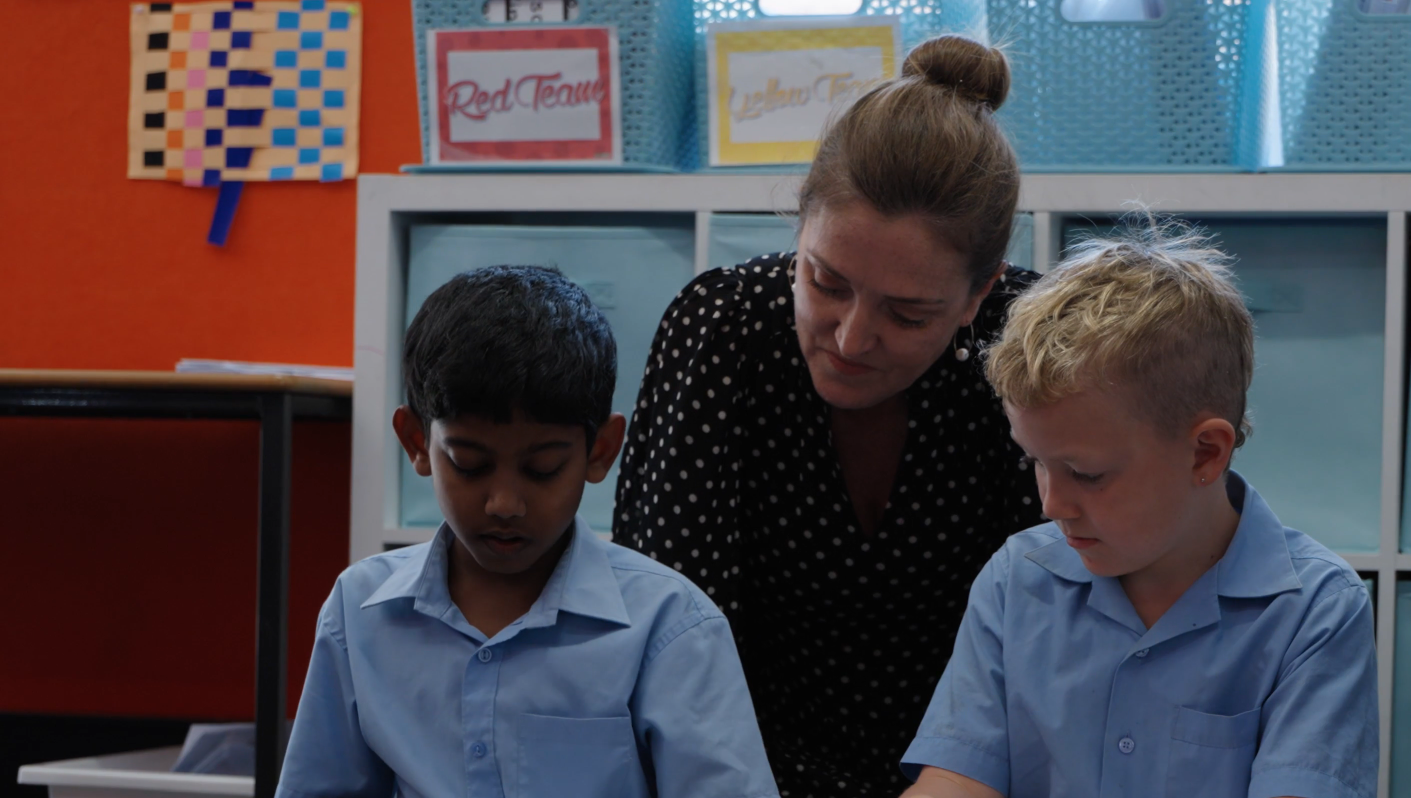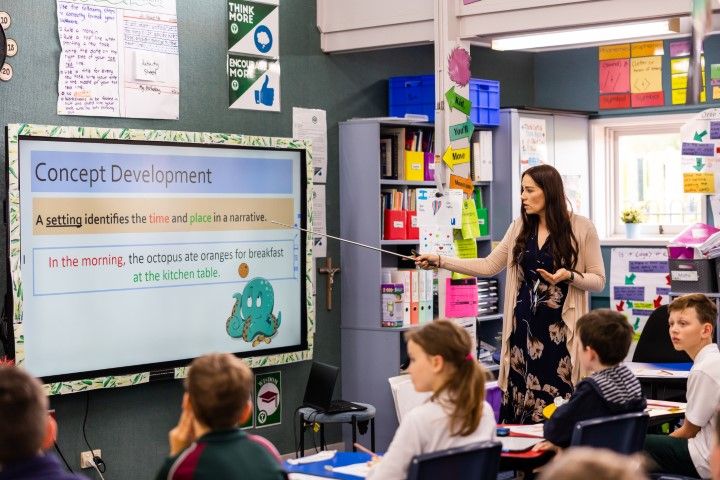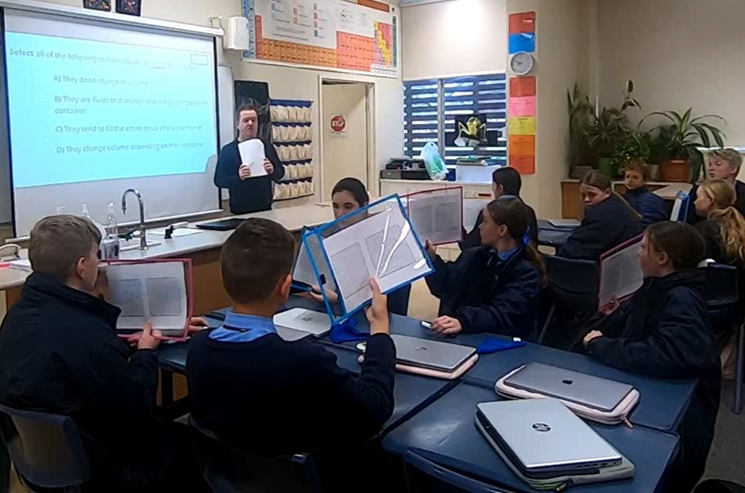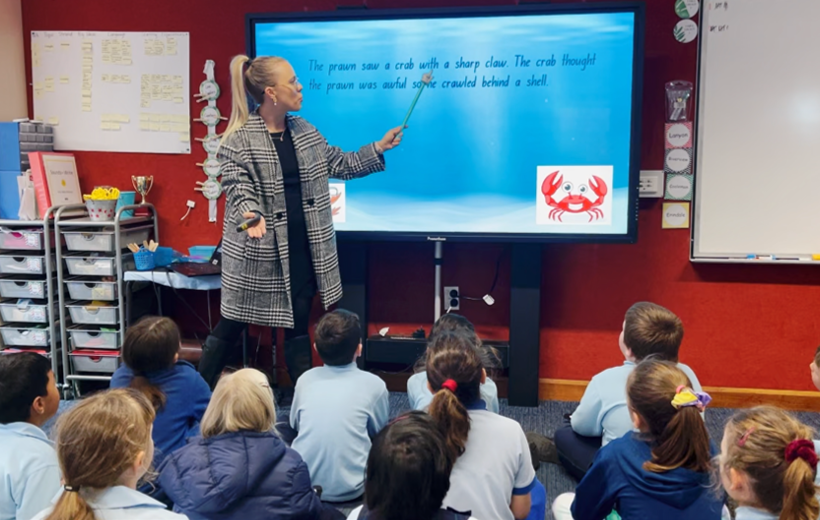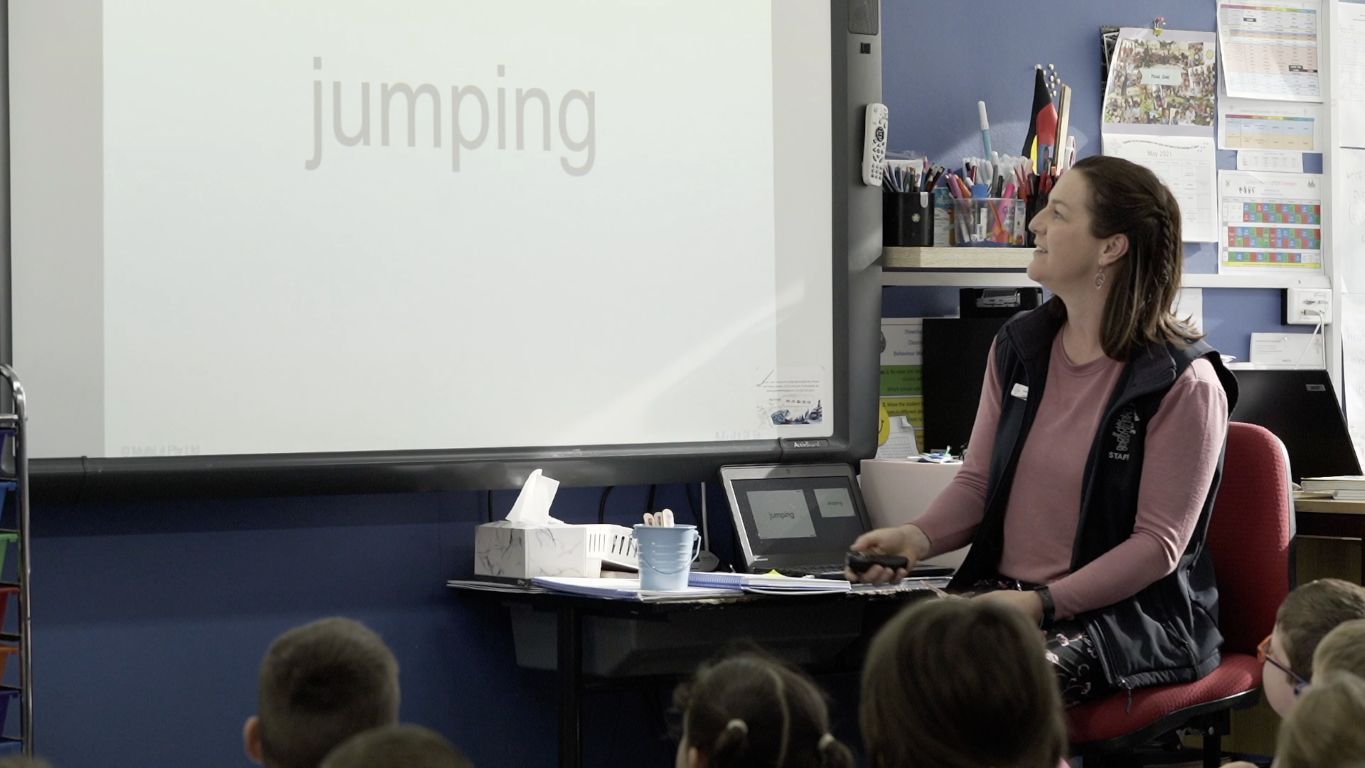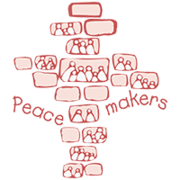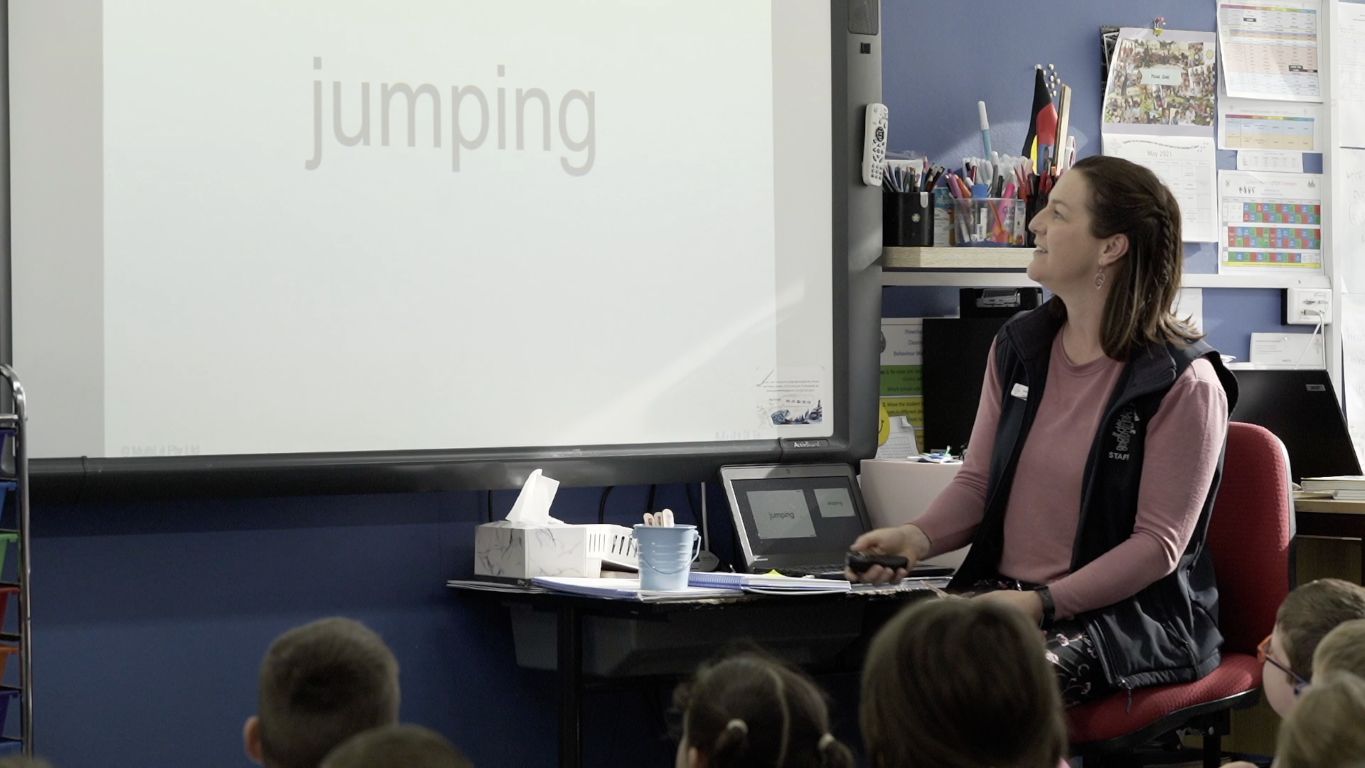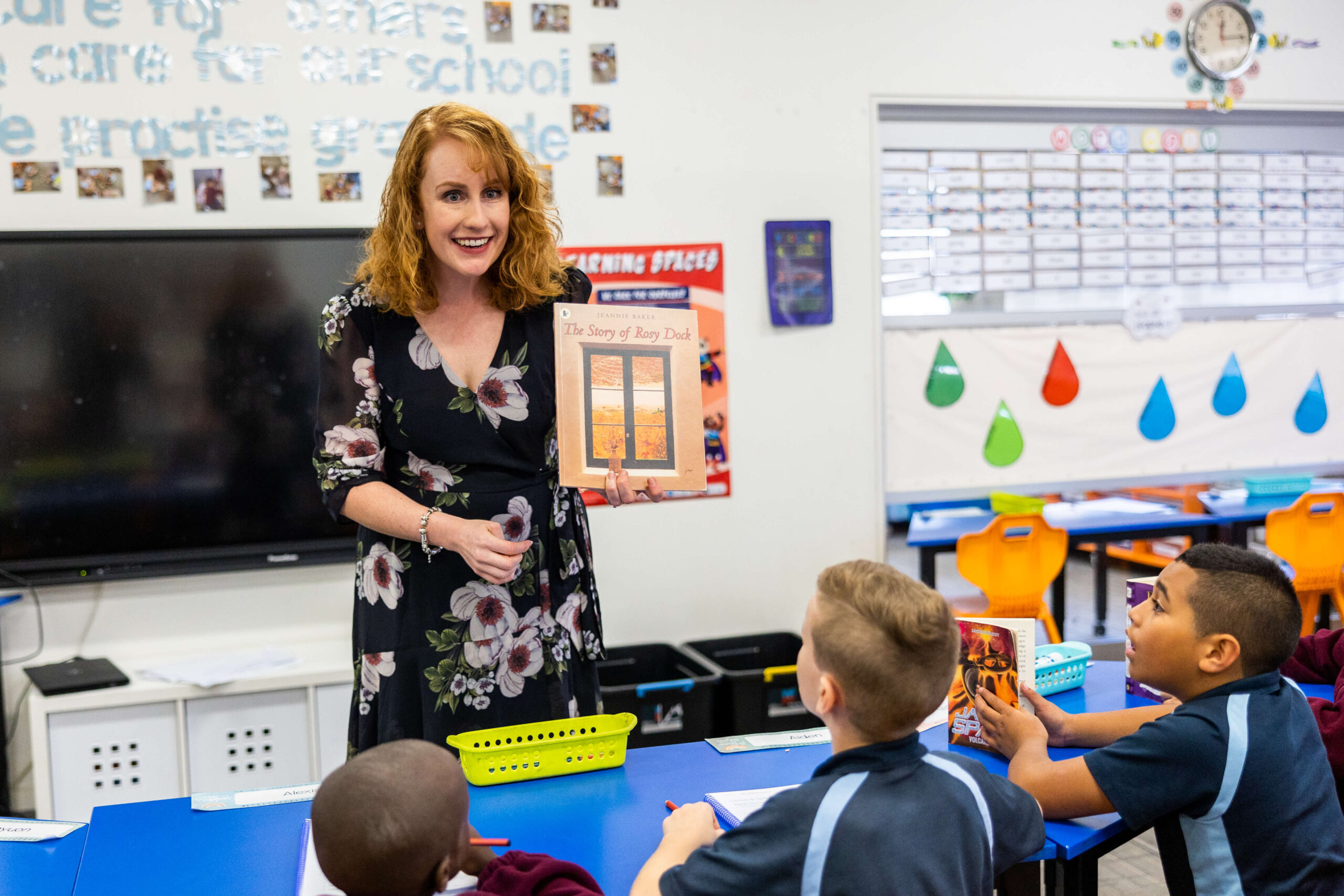What the UK can teach us about Science of Learning

Michaela Community School Headmistress, Katharine Birbalsingh, speaking with students in the yard. Image credit: Michaela Community School
It was the absence of noise and chaos that made the scene so astonishing. The Australian educators stood there in disbelief, as hundreds of high school students filed out into the corridors of Michaela Community School in north London and made their way to their next class.
The only words uttered were “Good morning, Sir” or “Good morning, Miss” as students respectfully greeted their teachers on entering their next classrooms.
Students made their way to their rooms, entering one at a time as their teacher greeted each of them by name. During the lesson everyone sat straight, arms folded across their chest, eyes focused on the teacher at all times.
Even more surprising for the team from Catholic Education Canberra Goulburn (CECG) was that the students embraced this rigid structure and routine. Over lunch time chats, students revealed that the clearly defined behavioural expectations created a calming environment that made them feel safe. The routine reduced stress and it allowed them to focus on learning.
Their school wasn’t academically selective, or in a privileged area. In fact, it was quite the opposite. Michaela Community School serves a low-socio economic community, with a large refugee population. By embracing a similar to Catalyst, they are receiving international attention for ‘punching above their postcode’ in their academic achievements.
Michaela’s results are mirrored at Ark Soane Academy – a new high school founded on evidence-based education. They also deliver the curriculum through a direct instruction model with a high level of structure, tight sequencing and teacher-led exposition supported by whole of school routines.

Tour participants visiting Ark Soane Academy, West London
The visit to both schools was part of a Science of Learning study tour coordinated by Knowledge Society. CECG sent 7 participants to learn from the United Kingdom’s experience in implementing:
- Evidence-based reading instruction
- Evidence-based teaching and learning in schools
- School and system improvement
- Effective models of teacher professional learning and mentoring for early career teachers.
The UK is ten years further along their SoL journey than Australia and the tour was a chance to get a glimpse of the future and learn from their successes and missteps.
So, what are CECG team’s key learnings?
Whole school routines reduce cognitive load
The CECG team appreciates the way that whole of school routines prepare students for learning. Michaela and Ark Soane students know exactly what is expected of them at every moment during the day. This consistency across every classroom reduces cognitive load for students and means teachers maximise every opportunity for learning as they’re not spending time settling the class.
Brad Gaynor, a Performance Improvement Leader, who oversees 14 schools in CECG, commented, “I was sceptical at first. However, the kids loved the routine and structure. It brings order to everything and the routine makes them feel safe.”
Grant Haigh, Principal of St Anne’s Temora Secondary School, adds, “It’s not about turning kids into robots – it’s about introducing positive habits and routine that best prepare them for learning.”
Create high expectations

An Ark Soane Academy student engaging in a lesson. Image Credit:
Ark Soane Academy
Both schools have high learning and behaviour expectations for every child, regardless of their socio-economic background or additional needs, which students continue to meet. Michaela consistently outperforms similar schools and its students have been accepted into the most prestigious universities in the UK – including Oxford and the London School of Economics.
Kathy Holding, Principal of Hennessy Catholic College, Young, found the trip enlightening, saying, “Every child can grow and has the right to do challenging work.”
The sentiment was echoed by Christine Wanjura, who oversees teaching and learning supports for students with additional needs. “For 90% of kids, it provides exactly what they need. To create the same expectations for the other 10% , we must have the wrap around supports to help them succeed.”
Australia’s quality of oracy needs to improve
Something that took the team by surprise was the focus both schools place on oracy. It is woven into all aspects of their curriculum and is displayed by articulate and confident students. The team all agreed it needs to be a crucial part of the curriculum – for both students and teachers.
Patrick Ellis, Education Lead at CECG, was impressed with how a focus on language and speech was tied into the schools’ daily routine of gratitude, where students give thanks to those who have helped them. He notes, “This is very relevant for a Catholic organisation.”
“Through Catalyst we focus on aspects of improving language, by promoting answering in full sentences and choral response,” he said.
Christine Wanjura called out the importance of language development for inclusion, saying “The ability to express yourself and your ideas fluently is crucial for social justice.”
Kathy Holding succinctly summarises, “Everyone needs a voice.”
A low variance curriculum allows teachers to focus on teaching
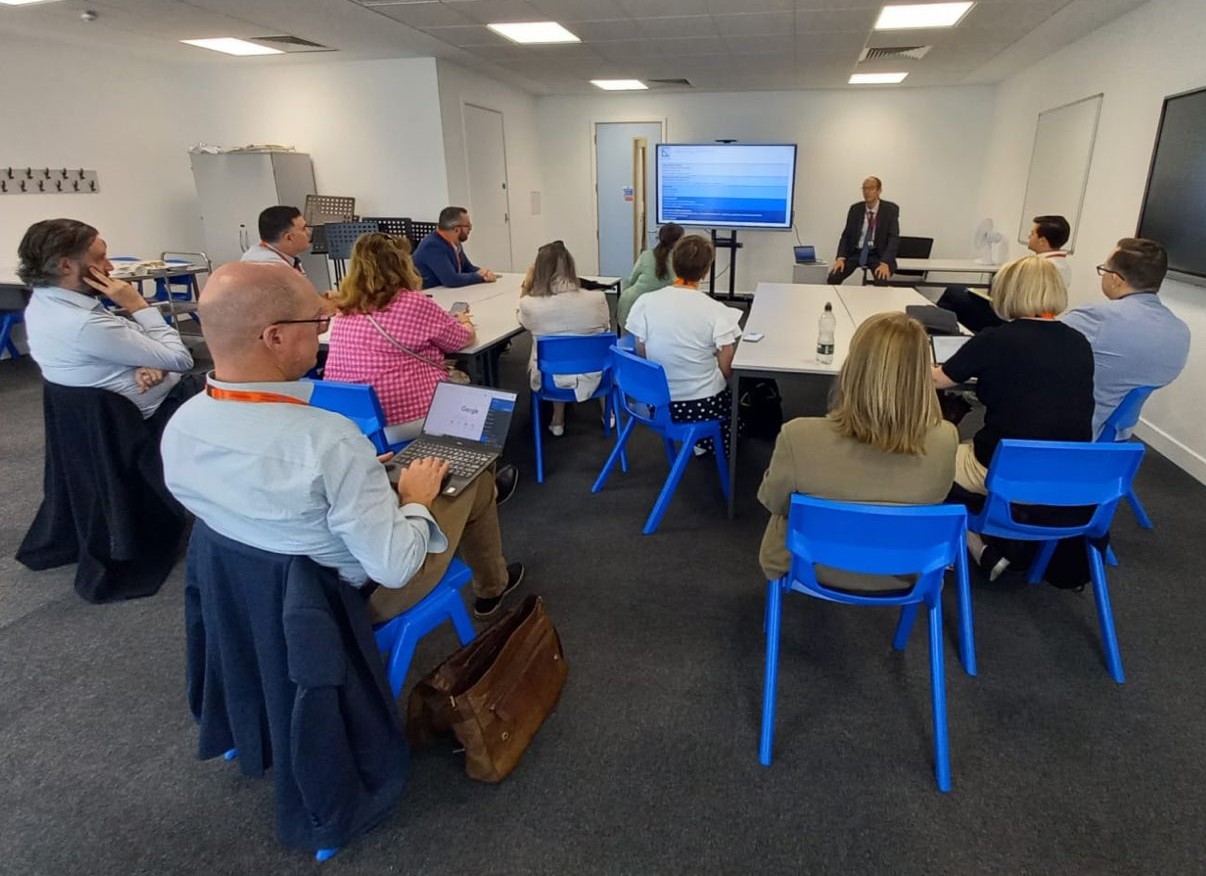
Tour participants engaging in a session at Ark Soane Academy
The UK experience confirms that in order to achieve the best outcomes for the students, the teacher is the most important learner.
Teacher focus is a pillar of Catalyst, upskilling and supporting them with professional learning, and developing a suite of quality resources to create a low variance, knowledge rich, curriculum.
While this approach is the exception in Australia, it is the norm in the UK. Pre-prepared resources allow UK teachers to focus their energy on delivering the curriculum – as well as reducing workload.
“Teachers need time to teach, not prepare resources,” notes Principal, Kathy Holder.
Christine Wanjura was impressed by the quality of teaching across the board, with teachers delivering great content explicitly. She also observed how proficient the teachers were with technology and how they used it with great impact in their classrooms.
Importance of onboarding
Just as students thrive when they know what is expected of them, so too do teachers. Both schools conducted extensive onboarding for new staff to help them understand the evidence-based reasoning behind the rules and routines. This creates the foundation for consistent standards across the school and allows new teachers to hit the ground running.
Cameron Tarrant, Principal of St Joseph’s Primary School, O’Connor, suggests this needs to extend to the whole school community. “We need to codify our expectations and give it to our staff, students and parents. Whether it’s how we move through the school, how we treat each other, or how we teach literacy, we need to embed a common language about what we do and why we do it.”
The value of high quality, low stakes feedback
For Brad Gaynor, it was the value of point in time feedback that really shifted his thinking. Both schools have a culture of continuous feedback, where teachers briefly observe each other in action and give immediate feedback. This instructional coaching model is low stakes and non-threatening, with a different focus every week. Brad’s take away was that effective teacher reviews don’t have to be a formalised, intrusive event.
Catalyst is on the right track
For the CECG team, the trip confirmed what they are seeing in their own schools: Catalyst works. “The UK reinforces we are on the right track,” says Brad Gaynor.
Patrick Ellis adds, “We have laid the foundations right.”
The CECG team has captured some valuable learnings from the UK Study Tour to reflect upon with our current Catalyst journey, as we continue to move from implementation to embedding and sustaining.
Learn more about the schools
